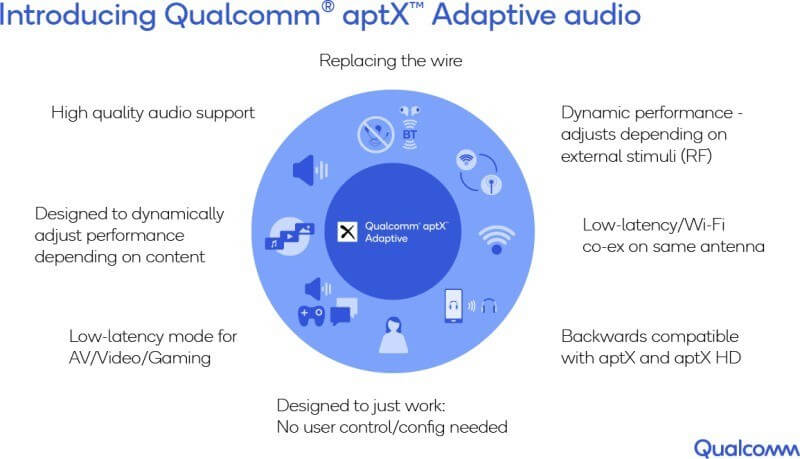Why it matters: If you listen to music on your Android phone through wireless headphones, chances are you’ve used aptX technology even though you might not know what it is.

AptX is a compression algorithm developed by Qualcomm that funnels high-quality sound into the narrow bandwidth provided by Bluetooth. The codec was introduced in 2015 with some limitations. Qualcomm has therefore been working on improving it and has announced a new version that's about ready to go it calls “aptX Adaptive” (I’m just going to call it aptXA for the purposes of this article).
The main feature of the new algorithm is that it can vary the bitrate depending on what you are streaming and the signal noise level of your environment. For example, if you are on the bus with a lot of other Bluetooth users, aptXA will compress audio into a smaller package to ensure a steady stream to your headphones. Conversely, if you are in an area with low signal traffic, the algorithm will expand to a higher bitrate for better quality.
Signal noise is not the only factor that aptXA takes into consideration. The codec also responds to the content that you are listening to. For example, it can tell the difference between music and the audio from a movie and will adjust the bitrate accordingly to improve quality while maintaining optimal connectivity.

AptX Adaptive operates in a range between 280kbps and 420kbps. This allows it to switch to a bitrate lower than the original aptX, but not quite as high as aptX HD which went up to 576kbps. Even though aptXA cannot reach as high as the HD variant, it still is able to maintain the same level of quality in a smaller file size.
“We basically improved the codec so what you were getting at 576 you now get at 420,” said Chris Havell, senior director of product marketing at Qualcomm.
Qualcomm says the codec is already built into Android Pie. However, Havell noted that headphones that support aptXA are not due out until the first half of 2019, adding that they will be backward compatible so they work on devices that use the older codecs.
Sorry iPhone users. No aptX Adaptive for you.
https://www.techspot.com/news/76240-qualcomm-announces-aptx-adaptive-improving-bluetooth-audio.html